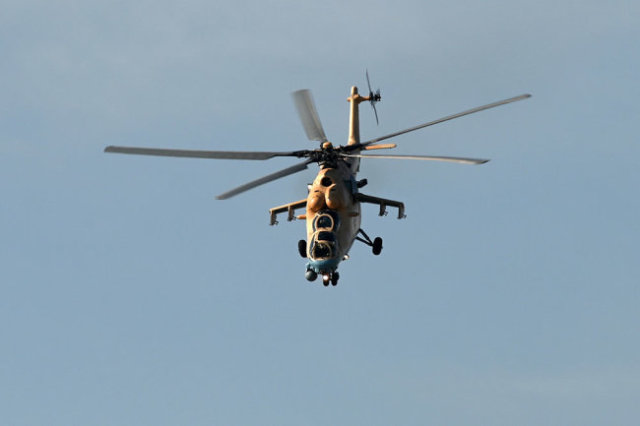Cyprus and Serbia have entered into negotiations on the acquisition by Belgrade of more than a dozen Russian Mi-35P transport and combat helicopters, which are in service with the Cypriot National Guard. This was reported the day before by the local newspaper Surgis mail.
According to the publication, a potential deal for the sale of 11 rotorcraft by Cyprus, which received the name "crocodile" for its characteristic appearance, can be estimated at between 150 and 300 million euros. At the moment, Nicosia has received an official request from Belgrade, but has not yet decided on a specific amount.
Recall that in 2001, Cyprus purchased 12 Mi-35P helicopters from Russia, which were repaired in 2007-2008 (equipment for night flights was installed, and 9M120 Ataka anti-tank guided missiles were purchased). One of the Cypriot "crocodiles" was lost in an accident in 2006.
According to leaks in the Cypriot media, in April, a Serbian delegation led by the country's Deputy Defense Minister Nenad Miloradovich visited Cyprus and inspected the Mi-35P at the Andreas Papandreou Air Base, assessing their technical condition. Belgrade's interest in buying these helicopters is explained by the fact that the Serbs have similar, but modernized and more modern machines in service - in December 2019, Serbia purchased four Mi-35M in Russia.
For its part, the Ministry of Defense of Cyprus plans to purchase a dozen new-generation attack helicopters. It is not known which ones exactly. However, the fact that Nicosia is forced to follow in the wake of the EU's sanctions policy against Russia makes the purchase of Russian equipment problematic, commentators note. In addition, in the field of military-technical cooperation with the authorities of the Eastern Mediterranean island state, the United States is actively strengthening, which partially lifted the arms embargo from Cyprus last fall.
It is known that in addition to Russian helicopters, the National Guard of the Republic of Cyprus is armed with T-80 tanks, BMP-3 infantry fighting vehicles, Tor air defense installations and other systems.
Alexander Gasyuk

